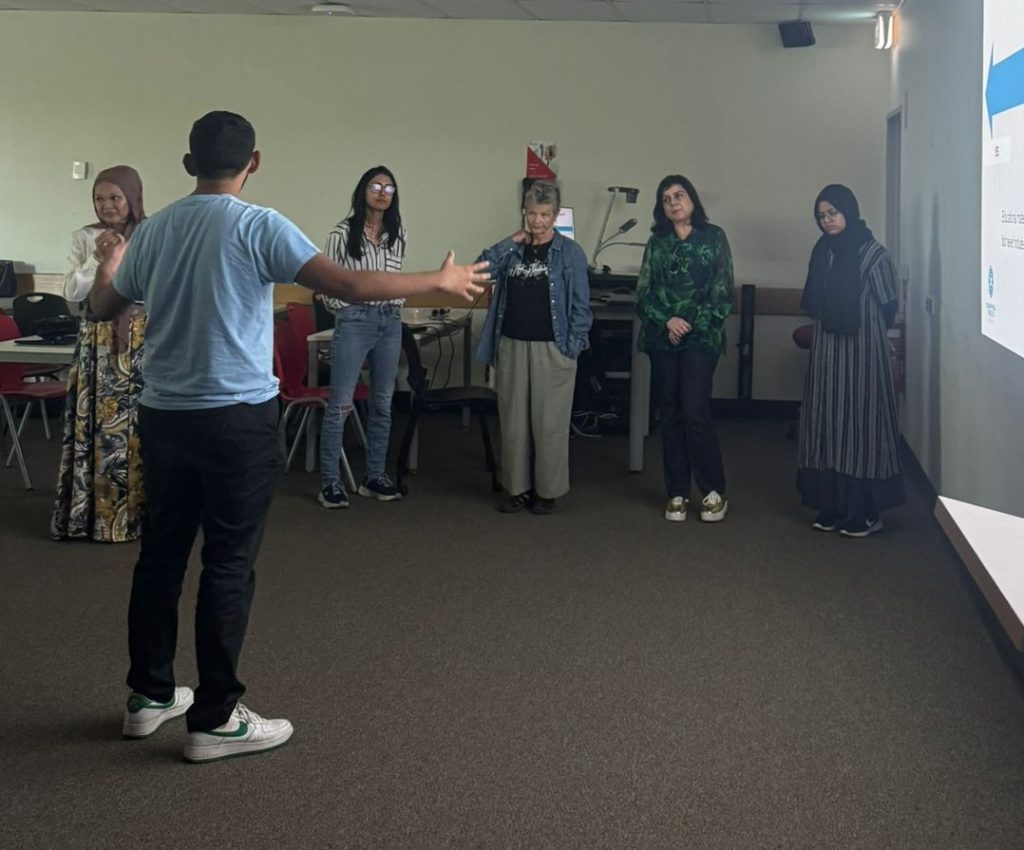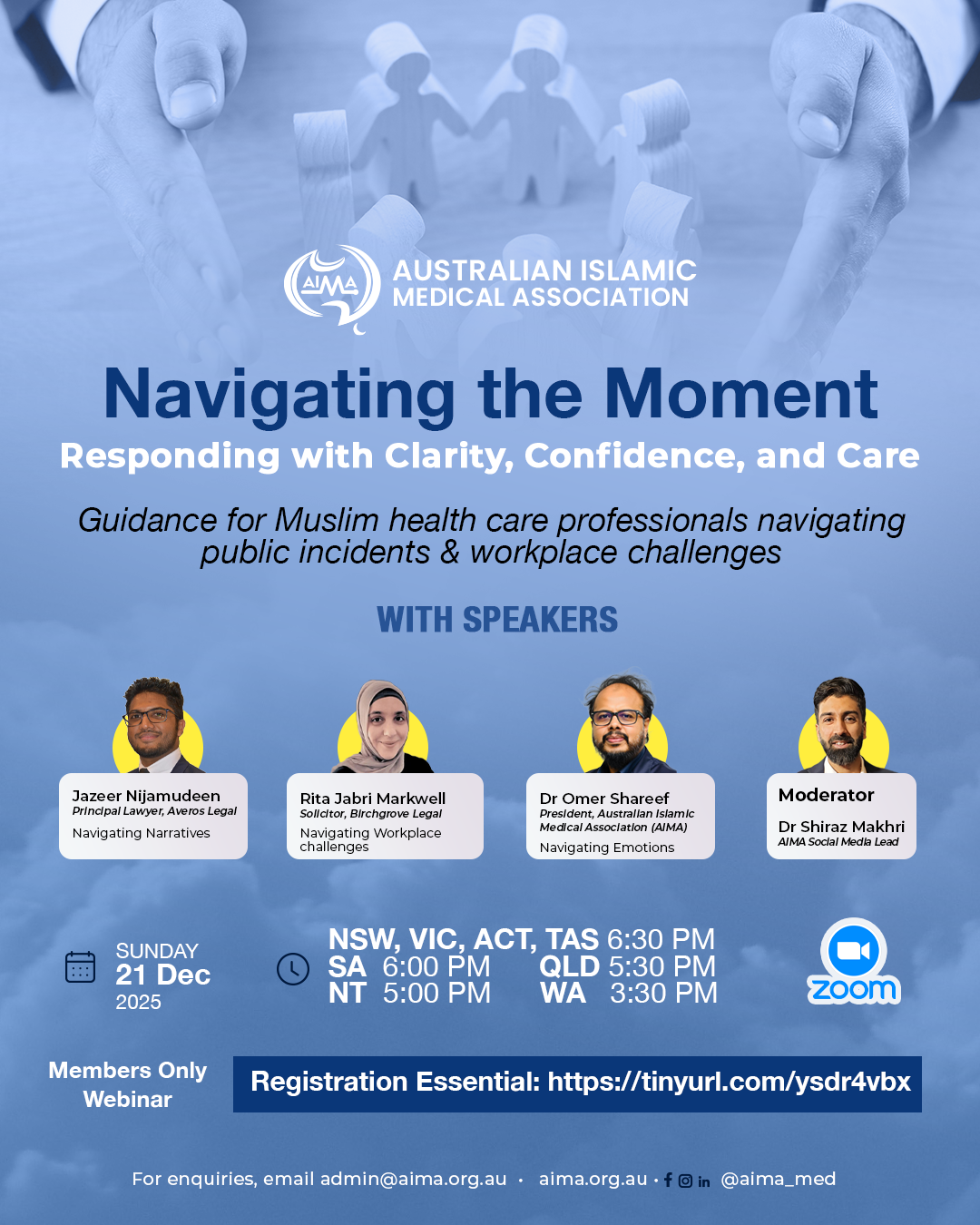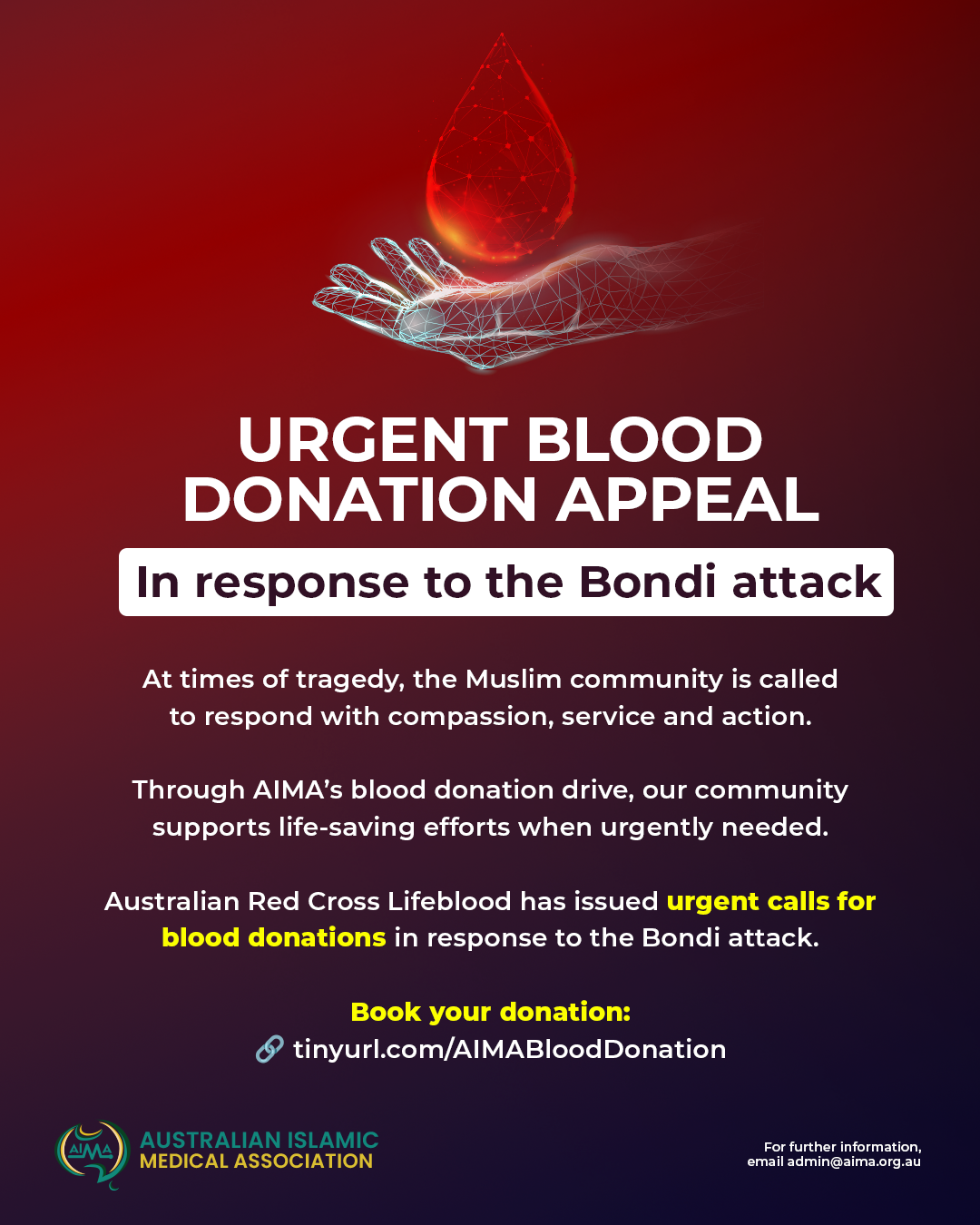The Australian Islamic Medical Association (AIMA) Queensland Student and Junior Medical Officer Wing, in collaboration with GUMSA (Griffith University Muslim Students Association) and BUMSA (Bond University Muslim Students Association), hosted an interactive workshop on Sunday 28 September 2025 at Griffith University Gold Coast exploring Islamophobia through the lenses of awareness, law, and professional responsibility.
The evening featured Dr Nora Amath, Co-Executive Director of the Islamophobia Register Australia, and Rita Jabri Markwell from Birchgrove Legal. Around thirty Muslim healthcare students and professionals attended, engaging in thoughtful discussions, case-based learning, and practical sessions on how to address Islamophobia in their studies, workplaces, and wider communities.
Mustafa Hamimi, AIMA Queensland Secretary and Student Lead, opened the event by introducing the Australian Islamic Medical Association (AIMA) as a professional organisation that unites Muslim healthcare workers through faith, ethics, and service to the community.
He emphasised the importance of equipping future professionals with the knowledge and confidence to identify, report, and respond to discrimination in constructive and informed ways.

Recognising and understanding Islamophobia
Dr Nora Amath delivered an in-depth presentation examining Islamophobia as a form of racism directed at expressions of Muslimness or perceived Muslimness. Drawing on national data from the Islamophobia Register Australia, she explained that discrimination often functions through exclusion, stereotyping, and bias embedded in systems rather than overt hostility.
Participants worked in small groups to analyse realistic scenarios including Muslim clinicians being denied appropriate protective equipment because of their beards, fasting patients being dismissed during Ramadan, and Muslim staff experiencing ridicule for religious practices or attire.
These discussions encouraged participants to see how institutional culture, language, and assumptions can reinforce bias even in professional spaces that value diversity.
Dr Amath also explored the gendered impact of Islamophobia, noting that visibly Muslim women face disproportionate levels of verbal abuse and exclusion. She presented research showing that such experiences lead to stress, anxiety, and a withdrawal from healthcare engagement.
Dr Amath urged attendees to recognise Islamophobia not as an isolated problem but as a structural issue requiring proactive education, empathy, and policy change.
She encouraged Muslim healthcare professionals to be confident in challenging bias, documenting incidents, and building peer support. Her message was clear that confronting Islamophobia is both a moral responsibility and a professional duty tied to the ethical practice of healthcare.
From awareness to advocacy
Rita Jabri Markwell provided a clear and practical overview of the legal and ethical frameworks that protect individuals from discrimination. She explained the concept of dehumanising material, which refers to any content that portrays a group as less than human, and described how such material may amount to racial vilification under the Racial Discrimination Act 1975.
Rita outlined the various formal reporting pathways through the Australian Human Rights Commission, the Queensland Human Rights Commission, and the Fair Work Commission, clarifying what type of incident falls within each jurisdiction.
She also explained how to balance freedom of expression with respect for the dignity and safety of others, ensuring that participants understood their rights in academic and professional settings.
Rita offered step-by-step guidance on how to document incidents, gather evidence, and seek advice from legal representatives, professional associations, or advocacy groups. She reaffirmed that human rights advocacy is lawful and protected, encouraging participants to act with professionalism, confidence, and sincerity when responding to discrimination.
Her presentation concluded with a reflection on the importance of collective responsibility, reminding attendees that advocacy grounded in integrity and compassion strengthens both individuals and the broader community.
Safe spaces and shared stories
The workshop opened with a reflective Your Name Story activity, where participants shared the meanings and histories behind their names. The exercise encouraged empathy, curiosity, and connection among attendees. Facilitators ensured a respectful and emotionally supportive atmosphere, allowing everyone to participate at their own pace and comfort level.
The tone of the evening reflected AIMA’s mission to foster leadership that combines professional excellence with the Islamic principles of compassion, justice, and humility.
The evening concluded with shared pizza and informal networking, providing a space for further conversation and reflection.
The Interactive Workshop reflected the shared commitment of the Australian Islamic Medical Association (AIMA), GUMSA, and BUMSA to empower Muslim students and professionals with the tools to recognise, report, and challenge Islamophobia.
It reinforced the vision of building a generation of Muslim healthcare professionals who lead with integrity, resilience, and faith.


